WWII's Flying Tiger veterans saluted
Updated: 2014-10-27 06:53
By LIAN ZI in San Francisco(China Daily USA)
|
||||||||
 |
|
James T. Whitehead, Jr.(first from right), Chairman of Flying Tiger Historical Organization, shares the information of the veterans of Flying Tigers that are printed on the flyers to Florence Fang (first from left), chairwoman of the Florence Fang Family Foundation and curator of WWII Pacific War Memorial Hall in California, and Mike Honda (second from left), congressman who represents 17th district, at the Reception Honoring Flying Tigers & WWII Veterans at Chinese consulate in San Francisco Friday night. Lian Zi / China Daily USA |
The legacy of the American Flying Tigers is still strong some 70 years after their battles fighting with China against Japan during World War II.
The Chinese consulate in San Francisco held a reception Friday to salute the squadrons that flew with the Chinese Air Force against the Japanese in the 1940s. The Flying Tigers, whose planes bore distinctive shark's faces, are credited with destroying almost 300 enemy aircraft.
California Congressman Mike Honda of the 17th District;Christopher Nixon Cox, the grandson of former US president Richard Nixon; Florence Fang, curator of the WWII Pacific War Memorial Hall in California; James T. Whitehead Jr., chairman of the Flying Tiger Historical Organization;and Flying Tigers veterans: Capt. Moon Fun Chin, David Thompson, Roy Dillion, Frank Gurney, Hank DeGraaf, Wes Arment, Max Kernaghan, Bill Behrns, George Franke and Bob Hong were invited to the event.
"As an important part of the world war against fascism, the American Volunteer Group (AVG) fought shoulder to shoulder with the Chinese military and made a brilliant achievement," said Yuan Nansheng, Chinese consul general. Yuan said the story of the squadrons "forms an important and brilliant chapter in the history of Sino-US relations".
2014 marks the 35th anniversary of the establishment of diplomatic relations between China and the US, said Yuan, who believes that the two countries can carry on the Flying Tigers' legacy, which can serve as a model of a major-power relationship.
"History could be a guide for the future," said Yuan, adding that many organizations, such as the Flying Tiger Historical Organization in Groveland, California, are collecting relics about the air crews to strengthen Sino-US friendships.
Fang donated $175,000 to the American Flying Tiger historical organization to purchase an aircraft that once flew the Hump Route so it can be permanently displayed in Guilin Flying Tiger Heritage Park at Yangtang airport in China, which will open to the public in March 2015. The park will also feature a museum and will be situated on more than 120 acres.
Fang said one of her older brothers was a pilot who was trained in the US and served in the Chinese Air Force during WWII. He also received an award from the Flying Tigers Association, Fang said.
Fang, who was born in China, said she "really cherished" good relations between the two countries.
As a Chinese overseas community leader, Fang committed herself to the construction of the first overseasWWII Pacific War Memorial Hallin the San Francisco Bay Area and has already invited Whitehead to be honorary director of the museum.
"It is my pleasure to be here to honor the legacy of the true American heroes of the Flying Tigers who played a critical role in fostering collaboration between the US and China," said Cox, who as a teenager would talk to his grandfather, the former president, who helped open the dialogue between the two countries with his historic visit to China in 1972.
Cox said he was impressed when Nixon talked about the collaboration between the Chinese Air Force andthe Flying Tigers and how it produced heroes on both sides.
"We should educate the world about the special friendship that the Flying Tigers started during the war," Whitehead said. "That could be the basis for today's relations."
He told China Daily that it is difficult for the eight Flying Tigers veterans to get together. All of them are over age 90.
Tracy Thompson shared her father David's story during the reception.
"After America officially enteredthe war, my father was based in Xi'an, China, and was shot down in July 1945," she said. "Then he was rescued by Chinesepeoplewho took care of him until the end of the war."
The experience left him with strong feelings of friendship and gratitude toward the Chinese people, she said.
zilian@chinadailyusa.com
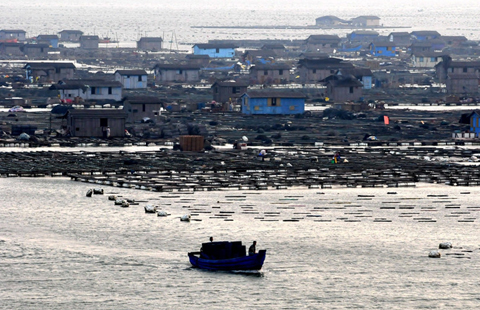
 A 'floating city' in East China
A 'floating city' in East China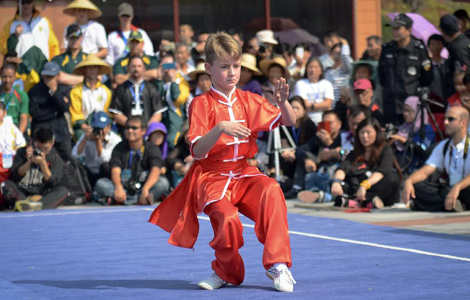
 6th World Traditional Wushu Championships kicks off in Anhui
6th World Traditional Wushu Championships kicks off in Anhui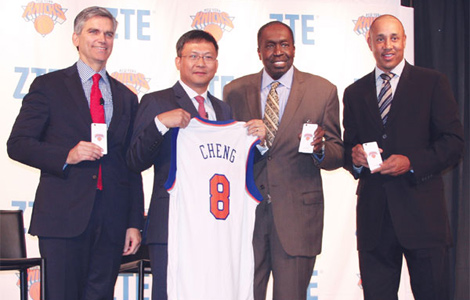
 ZTE to be NY Knicks' smartphone sponsor
ZTE to be NY Knicks' smartphone sponsor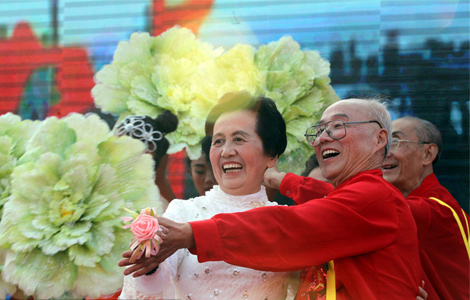
 Couples mark golden wedding anniversary in Jiangsu
Couples mark golden wedding anniversary in Jiangsu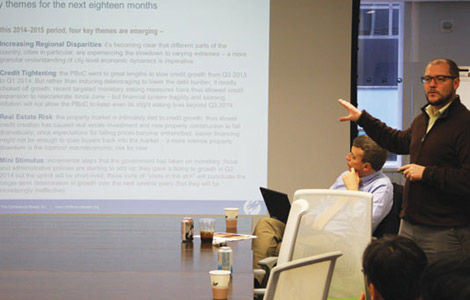
 China's economy in 'transition': expert
China's economy in 'transition': expert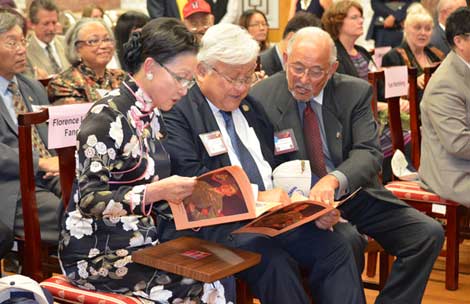
 WWII's Flying Tiger veterans saluted
WWII's Flying Tiger veterans saluted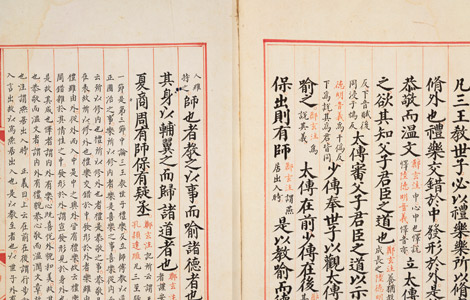
 600-year-old Chinese book found in California
600-year-old Chinese book found in California
 China's growing role in Mexico not a threat to US: expert
China's growing role in Mexico not a threat to US: expert
Most Viewed
Editor's Picks

|

|

|

|

|
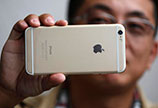
|
Today's Top News
Suning sets the date: 11.11 debut for US store
Chinese rail firms in mix for California
ZTE to be NY Knicks' smartphone sponsor
Man guilty of murder in attack on Chinese students
Canadian PM cancels trip to Beijing for APEC meeting
Not so fast on China economic predictions: experts
Reductions considered for capital punishment
China's economy in 'transition': expert
US Weekly

|

|







